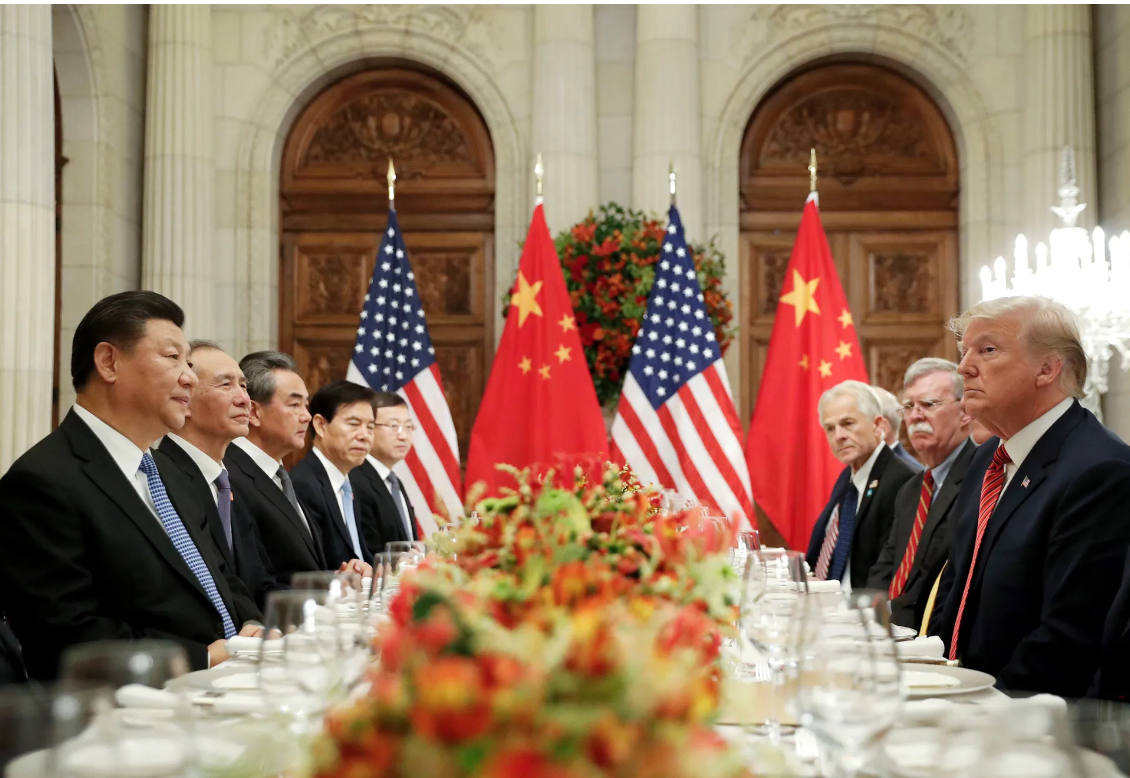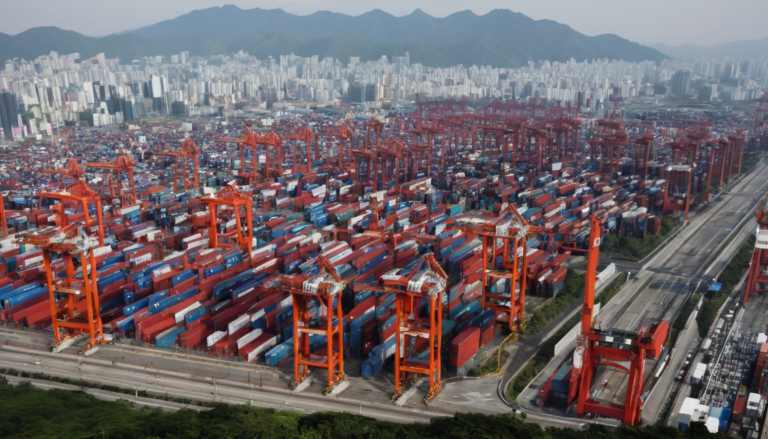Taiwan’s Tech Sector Faces Uncertainty Amid Trump’s Tariff Policies: Plans for Resilience
As U.S. President-elect Donald Trump readies his massive economic overhaul, including a proposed 60% tariff on Chinese imports, Taiwan finds itself on high alert. With the U.S. threatening to impose hefty tariffs on Chinese-made goods, Taiwan’s government is looking to support its key industries, particularly in the tech and semiconductor sectors, which are vital to both the global economy and Taiwan’s domestic economy.
In an interview this week, Taiwan’s Economics Minister, Kuo Jyh-huei, laid out the government’s strategy to mitigate the impact of Trump’s policies on Taiwanese firms operating in China, outlining measures to support companies considering a shift in production back to Taiwan. The key focus is on maintaining Taiwan’s position as a global leader in the semiconductor industry and safeguarding the interests of companies that rely on Chinese manufacturing.
The Tariff Storm: Implications for Taiwanese Firms in China
Taiwan’s high-tech companies have long relied on the cost advantages of operating in China, from lower wages to vast supply chain networks. However, Trump’s tariffs on Chinese goods pose a direct threat to these arrangements. With the U.S. targeting China for unfair trade practices and intellectual property theft, Taiwanese firms face the prospect of not only higher costs but also a more unpredictable operating environment.
Kuo stressed that while the 10% general tariff on imports to the U.S. is unlikely to affect Taiwan directly, the proposed 60% tariff on Chinese-made products could have a substantial impact on Taiwanese firms with significant operations in China, particularly those in the technology and electronics industries. These companies, which include major players like Foxconn, Acer, and Quanta, could be forced to rethink their China-based supply chains and consider returning to Taiwan or diversifying to other regions.
Government Support for Shifting Production
In response to these challenges, Taiwan is preparing a range of policies to support companies contemplating a move away from China. Kuo reassured business leaders that the government would facilitate this process, offering financial incentives and assistance with new infrastructure development. This support is aimed at ensuring that Taiwanese companies can quickly pivot and maintain competitiveness in the global market.
“We are already looking into ways to create a conducive environment for businesses that want to bring their production back to Taiwan,” Kuo said. These measures are intended to mitigate disruptions and prevent companies from relocating to other low-cost manufacturing hubs in Southeast Asia or India, which may present a threat to Taiwan’s longstanding manufacturing dominance.
Impact on TSMC and the Global Semiconductor Supply Chain
The spotlight is particularly on Taiwan Semiconductor Manufacturing Co. (TSMC), which holds a dominant position in the global semiconductor industry. TSMC’s advanced manufacturing technologies are essential to companies like Apple, Nvidia, and Qualcomm, making it a crucial player in the global supply chain.
Trump’s rhetoric has raised concerns about the stability of U.S.-Taiwan relations, especially with his comments about “protection fees” for TSMC, suggesting that Taiwan’s chip manufacturing success was built on unfair competition. He also described the CHIPS Act—intended to incentivize domestic semiconductor production—as a “bad deal” compared to tariffs, hinting at potential trade-offs that could affect TSMC’s ability to operate in the U.S. under favorable terms.
Kuo addressed these concerns, reaffirming Taiwan’s position as a reliable partner in the global tech ecosystem. He emphasized that TSMC’s commitment to job creation in the U.S. through its new $12 billion Arizona plant—part of a broader effort to expand U.S. chip manufacturing—would likely secure continued support from the CHIPS Act. This alignment with U.S. interests should help counterbalance some of the protectionist rhetoric coming from the Trump camp.
“We have a shared interest in the semiconductor industry,” Kuo said. “TSMC’s U.S. operations benefit both Taiwan and the United States. It is a mutually beneficial relationship.” Taiwan’s advanced chip production capabilities provide U.S. companies with access to cutting-edge technology, while the U.S. offers Taiwan critical access to its high-end consumer markets.
Taiwan’s Strategic Plans: Diversifying Supply Chains and R&D Investments
Beyond supporting companies that may consider relocating operations from China, Taiwan is focusing on strengthening its position in the global supply chain by encouraging more diversification in production and research and development (R&D). Kuo hinted that the government was preparing to offer subsidies to companies willing to move operations back to Taiwan or to other friendly regions, which could help counterbalance the rising costs of doing business in China.
Moreover, Taiwan’s government is making significant investments in R&D to keep its tech industries at the cutting edge. The focus is not just on chips, but also on emerging technologies like artificial intelligence, quantum computing, and 5G telecom networks, which could help diversify the island’s tech economy and reduce reliance on China-based manufacturing.
U.S.-Taiwan Relations in Flux
While Taiwan’s economy is facing potential disruption from Trump’s tariffs, it is also navigating the changing geopolitical landscape in the wake of U.S.-China tensions. Kuo confirmed that Taiwan’s government is actively engaging with U.S. policymakers to secure Taiwan’s interests, particularly in the semiconductor sector. Given that TSMC and other Taiwanese companies play a critical role in U.S. tech supply chains, Taiwan is aiming to strengthen its relationship with the U.S. through continued collaboration in research and technology.
The rise of U.S. protectionist policies, especially Trump’s rhetoric on “America First,” has already created a challenging environment for international trade. Taiwan’s strategy will need to adapt to the evolving political landscape, balancing its relationships with both the U.S. and China while ensuring its own economic resilience. By positioning itself as a key player in the semiconductor supply chain and continuing to invest in high-tech industries, Taiwan hopes to reduce the vulnerability of its economy to external shocks.
Looking Ahead: A Shifting Global Trade Landscape
The next few months will be crucial for Taiwan’s tech sector as it faces the challenges posed by U.S. tariffs on Chinese imports and the broader shifting geopolitical and economic dynamics. Taiwan’s government’s efforts to provide support for companies moving production from China, and its commitment to strengthening the island’s R&D and manufacturing capabilities, signal that the government is preparing for a period of transition.
For Taiwanese companies, particularly those in the semiconductor and electronics sectors, the stakes are high. With Taiwan positioned as the key provider of advanced chips to global tech firms, the country’s ability to navigate Trump’s tariffs and trade policies will determine its continued role as a critical player in the global economy. Whether Taiwan can successfully weather this storm may depend on its ability to maintain a strong and diversified manufacturing base while also adapting to the shifting tides of international trade.
Conclusion;
Taiwan’s Resilience Amid Changing Global Trade Dynamics
As U.S. President-elect Donald Trump’s proposed tariffs on Chinese goods threaten to reshape global trade, Taiwan finds itself at a critical juncture. The potential 60% tariff on Chinese imports and Trump’s protectionist policies could disrupt Taiwanese firms operating in China, particularly those in the technology and semiconductor sectors. However, Taiwan’s government is taking proactive measures to support its industries, offering financial incentives and assistance to companies considering a return to Taiwan.
The global semiconductor supply chain, in which Taiwan plays a pivotal role through companies like TSMC, is a central focus. While Trump’s rhetoric around “protection fees” and criticism of Taiwan’s chip industry raises concerns, Taiwan’s strategic alignment with the U.S. in advanced semiconductor manufacturing offers a strong foundation for continued collaboration. TSMC’s significant investments in U.S. production facilities, coupled with Taiwan’s ongoing focus on R&D and diversification, position the island as a crucial player in the future of global tech.

